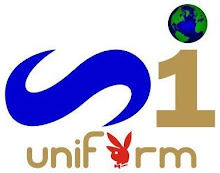Potential of small-and medium-scale rabbit farming will be compared to industrialized poultry production. Poultry production in most countries is now an industrial process. The swine industry is also rapidly becoming industrialized. Critics refer to industrial animal production as "factory farming". There is increasingly a societal back-lash to what is perceived as factory farming. Major societal concerns are: (1) intensive animal production is inhumane and detrimental to animal welfare. (2) animal production is controlled by corporate animal production eploits workers, (4) modern animal production compete directly with grains used for human consumption, (5) diets containing animal products are unhealthy, causing degenerative diseases such as heart disease and cancer, (6) animal products are produced using antibiotics, hormones and other chemicals, resulting in food safety concerns, and (7) intensive animal production is harmful to environment. In general, animal and poultry scientists are supportive if intensive, high-tech animal production, and have been responsible for much of the research which has led to technological innovations in animal agriculture. Intensive systems of animal production, largely a result of technological advances pioneered by animal and poultry scientists, have led to numerous animal welfare, food safety and environmental problems. Biotechnology has introduced further etical issues, for example with cloning of animals. Animal scientists should be in the lead in addresing these problems and concerns. Rabbit production does not fit into induztrialized, globalized. corporate-controlled model, and may offer an alternative methode of animal production more acceptable to society, perticularly in developing and emerging economies, particularly







Pengikut
Kurs Mata Uang Terkini
Archive
-
▼
2011
(37)
-
▼
Agustus
(10)
- Pertanian Organik di Jepang
- Usaha Ternak Ayam Potong
- Usaha Ternak Penggemukan Kambing Jawa untuk Hari R...
- Sebab-Sebab Turunnya Rizki
- 10 Orang Terkaya Di Dunia
- Zakat Hewan Ternak/Usaha Peternakan
- ABSTRAK
- PENGOLAHAN KULIT KELINCI
- Inovasi bisnis kelinci hasilkan omzet Rp50 juta/bulan
- Tinjauan Hukum Islam Terhadap Jual Beli Urine Keli...
-
▼
Agustus
(10)
Labels
- Berbagai Pertimbangan Sosial Ekonomi dalam Usaha Ternak Kelinci Skala Kecil dan Menengah (1)
- Ide Bisnis (2)
- INDUSTRIALIZATION AND GLOBALIZATION 0F ANIMAL AGRICULTURE: IMPLICATIONS FOR SMALL AND MEDIUM SCALE RABBIT PRODUCTION (1)
- Karir (1)
- Motivasi (5)
- Obat dan Suplemen (3)
- Pakan Kelinci (3)
- Pertanian Organik (1)
- Perubahan Histologik Jaringan Hypofise Kelinci Jantan Setelah Mendapat Suntikan Tunggal Hormon Testosteron (3)
- Potensi Ternak Kelinci Sebagai Penghasil Daging (6)
- Produk (2)
- Ramadhan (1)
- Syariah (1)
- Urin Kelinci (1)
- Usaha Kelinci (1)
Total Tayangan Halaman
Diberdayakan oleh Blogger.

0 komentar:
Posting Komentar